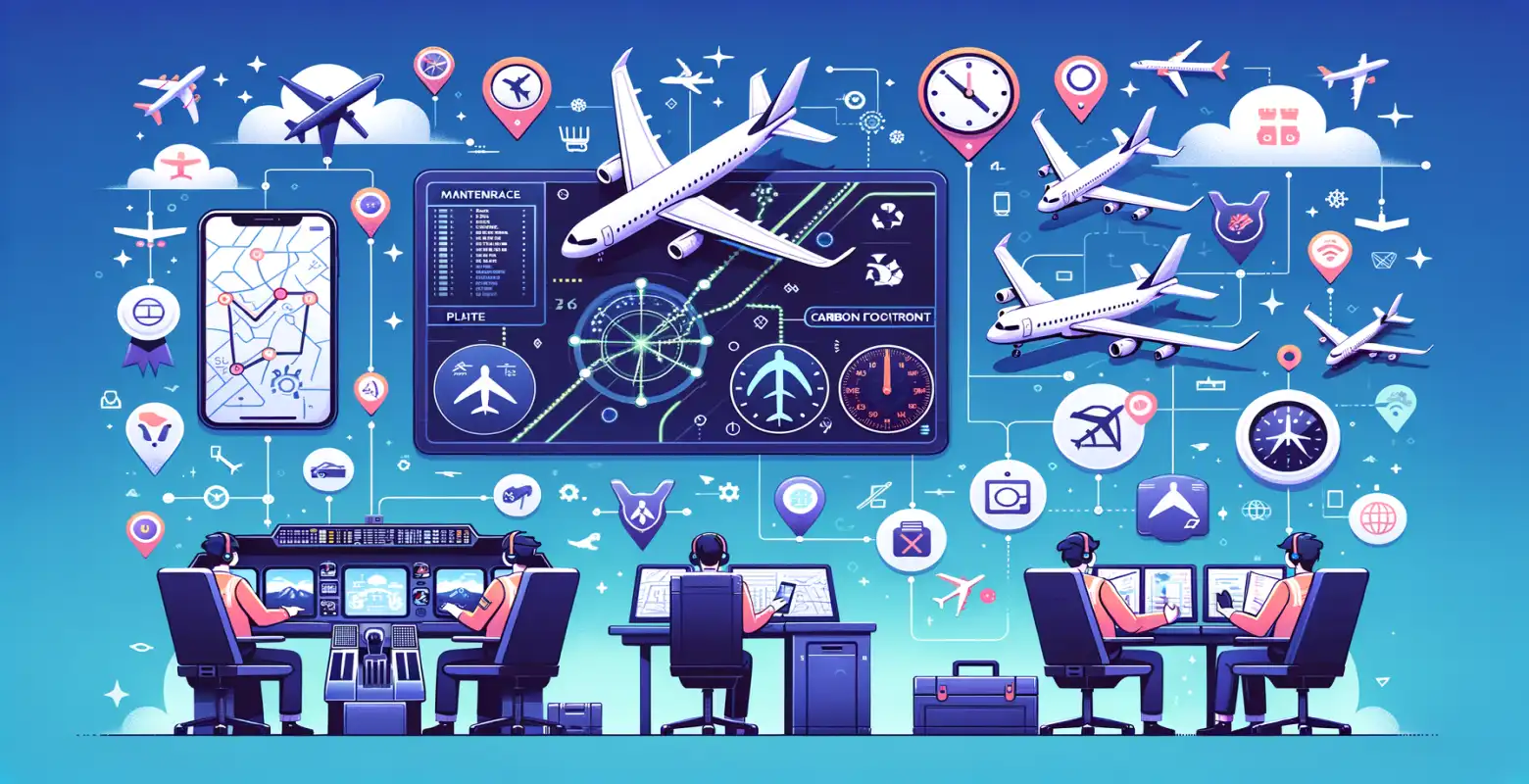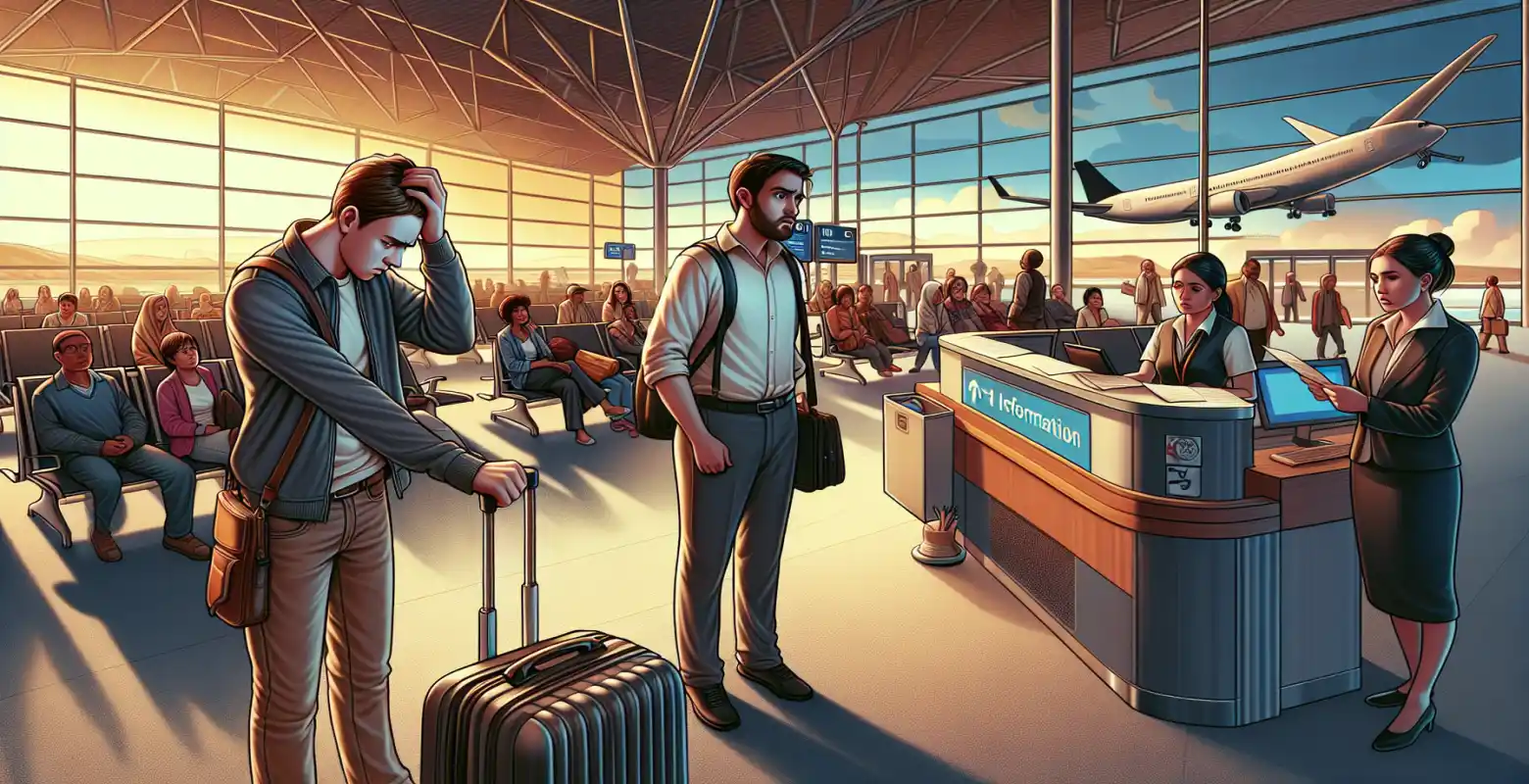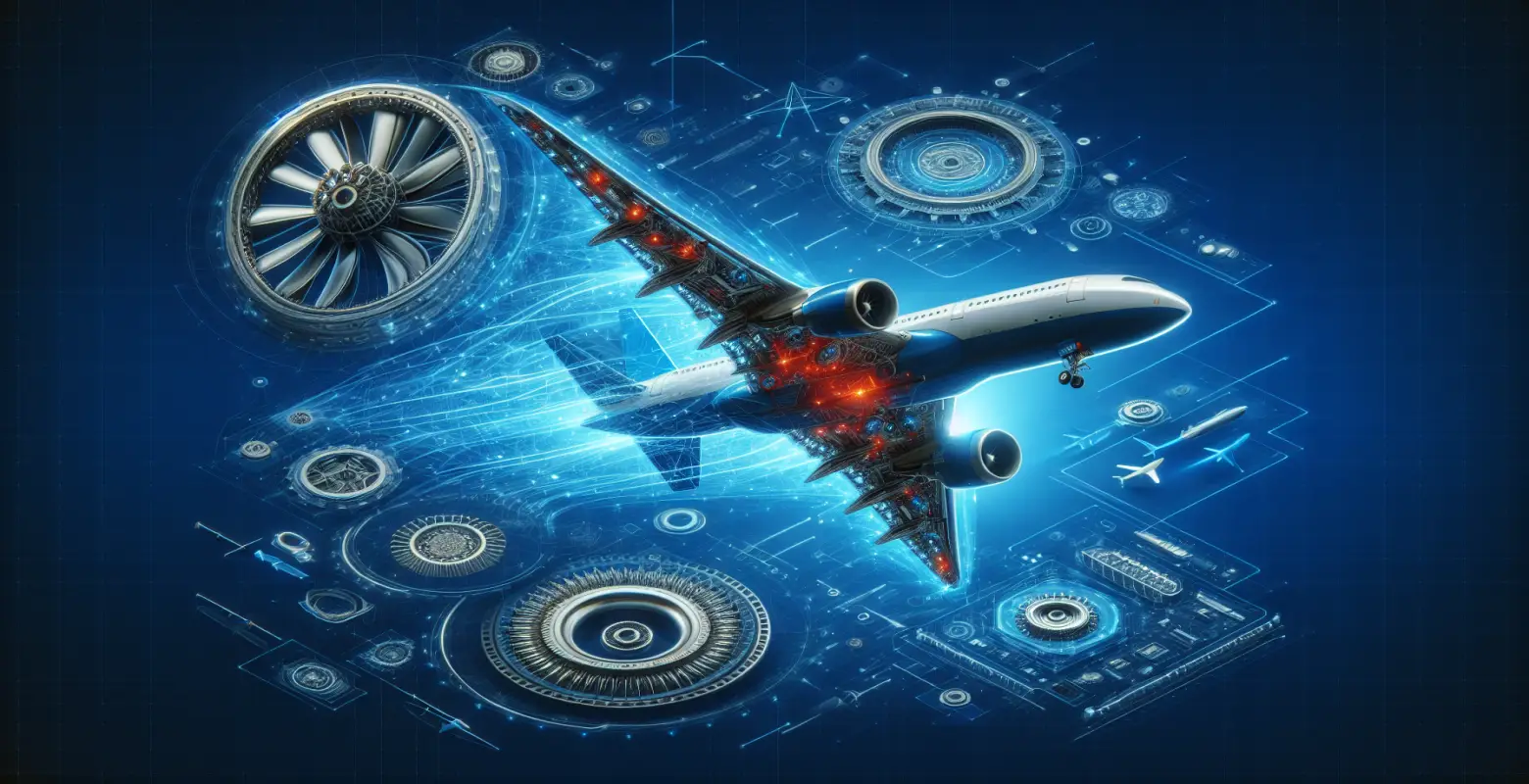What benefits does digital aviation bring?
Introduction
Digital aviation is a term that is increasingly appearing in the context of modernization and innovation in the aviation industry. In the era of rapid technological progress, digitalization becomes a key element in the development of many sectors, including aviation. The application of modern digital technologies brings numerous benefits, both for airlines and passengers. In this article, we will look at the benefits of digital aviation, why it is important, and what challenges and future trends we can observe in this field.
Digital Air Traffic Management
Improving operational efficiency is one of the main advantages of digital aviation. Thanks to modern air traffic management systems, such as SESAR (Single European Sky ATM Research), it is possible to significantly increase airspace capacity. Digital systems enable more precise flight route planning, resulting in lower fuel consumption and reduced CO2 emissions.
Enhancing safety is another benefit of digitization. Modern data monitoring and analysis systems allow for faster detection of potential threats and more efficient crisis management. This provides pilots and air traffic controllers with access to more accurate real-time information.
Development of Communication Technologies
Satellite communication and advanced communication systems are key elements of digital aviation. They enable stable and reliable exchange of information between the aircraft and the ground, which is essential for efficient flight management in busy airspace.
Internet of Things (IoT) is playing an increasingly important role in aviation. Connecting onboard devices to the network allows for real-time monitoring of the technical condition of aircraft and predicting potential failures. This helps to minimize unplanned downtime and increase fleet reliability.
Passenger Amenities
Service personalization is a trend that gains importance thanks to digitalization. Airlines are increasingly offering personalized travel experiences, tailoring their offerings to passengers' individual preferences. Through Big Data technology, carriers can better understand their customers' needs and provide them with tailored offers.
Entertainment and connectivity onboard are key elements that impact travel comfort. Modern aircraft offer advanced in-flight entertainment systems and access to high-speed Internet, made possible by modern satellite technologies.
Challenges of Digital Aviation
Data security is one of the main challenges facing digital aviation. As more aviation systems become interconnected, the risk of cyberattacks increases. The industry must invest in advanced security measures to protect passenger data and operational systems.
Integration of new technologies with existing systems is another challenge. This process requires significant financial investment and proper staff training. The introduction of new technologies must be carried out smoothly to avoid disruptions to current operations.
The Future of Digital Aviation
Autonomous aircraft is one of the most fascinating directions in the development of digital aviation. Although mass adoption of autonomous machines is still awaited, intensive work is already underway to develop this technology, which could revolutionize the way we travel.
Sustainable development is another area where digital aviation can play a key role. Digitalization enables more efficient resource management and reduces the impact of aviation on the natural environment. In the future, we can expect further development of technologies that will support ecological initiatives in the aviation industry.
Summary
Digital aviation brings a range of benefits that have a significant impact on the overall industry development. Improving operational efficiency, enhancing safety, better communication, and personalized services for passengers are just some of the advantages. Despite numerous challenges, such as the need for data protection or integration of new technologies, the future of digital aviation looks promising. With technological progress, we can expect further innovations that will benefit both airlines and passengers, making air travel more comfortable and environmentally friendly. We invite you to follow the upcoming changes and trends in this dynamically evolving field.






Number of comments: 0